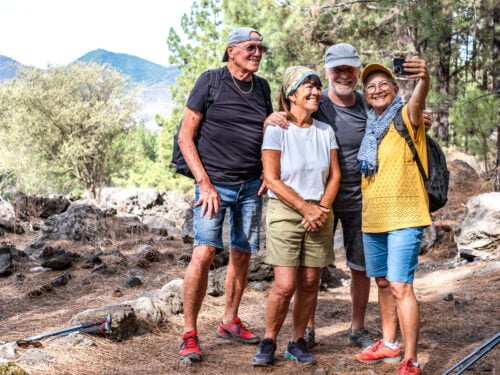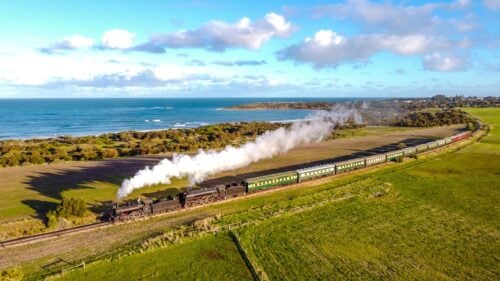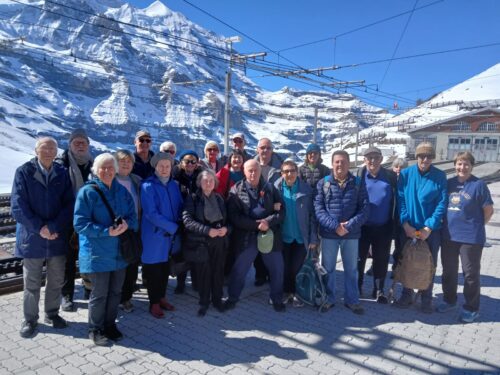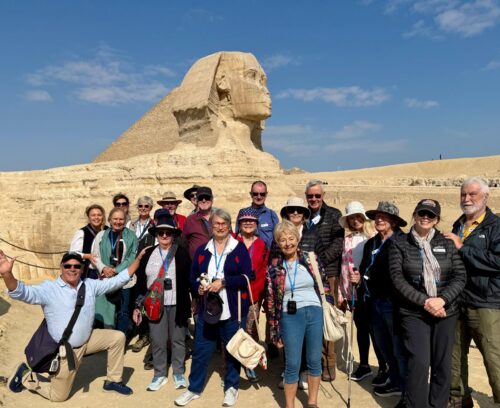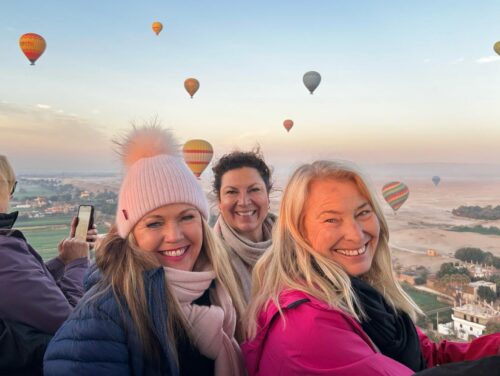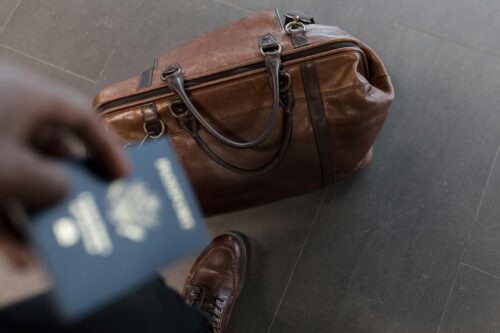Travel is one of the greatest joys, particularly as we get older and have more time and money to spend. For travellers who enjoy immersive experiences like Railway Adventures’ small group rail journeys, being aware of key health considerations can mean the difference between a trip that’s enriching and one that’s exhausting.
Whether you’re dreaming of Japan’s autumn colours or the Aussie outback’s red dust, let’s explore the essential health and mobility factors to consider before booking your next adventure.
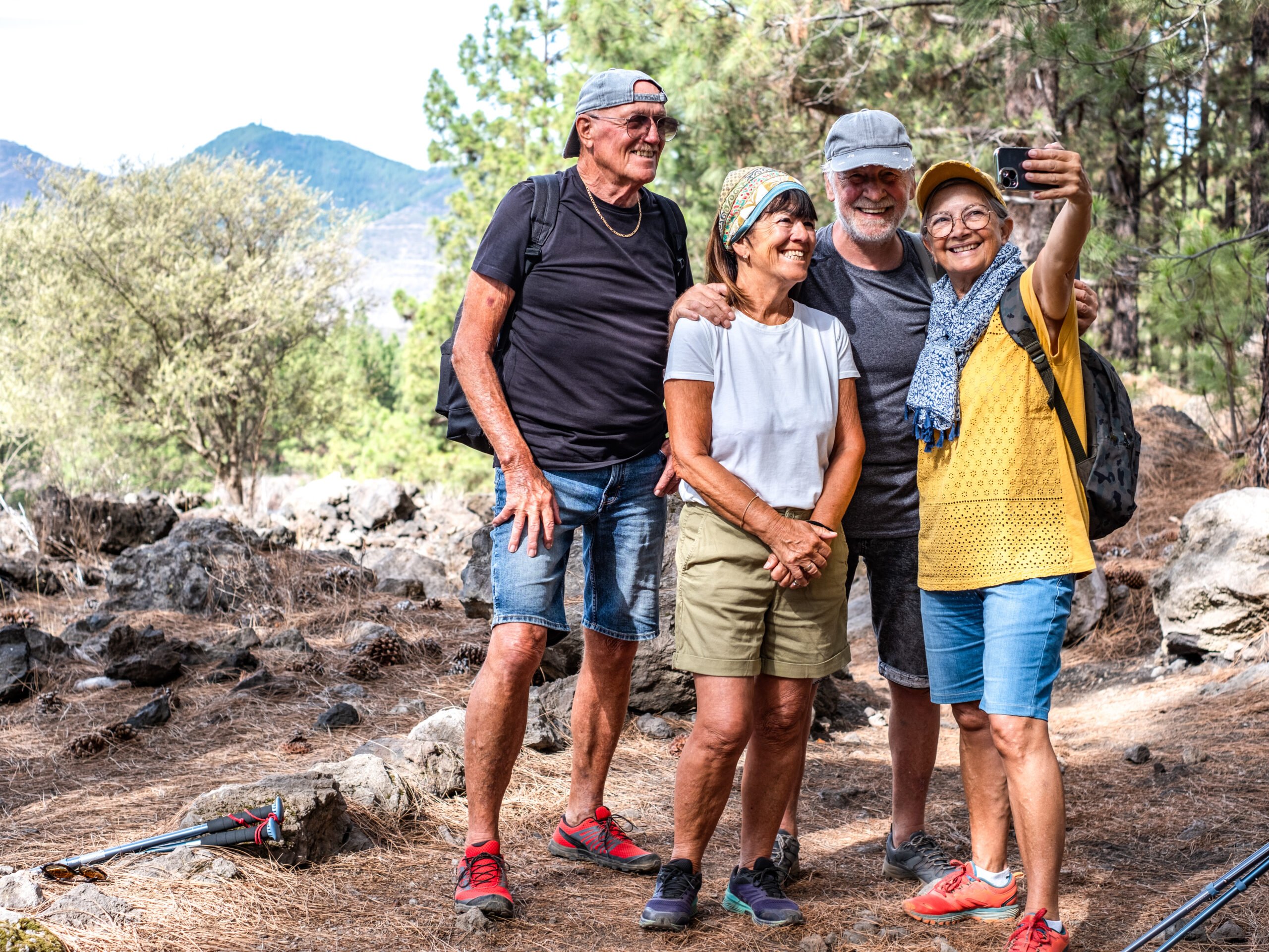
1. Physical Mobility and Travel Stamina
Why it matters:
Many guided tours include walking tours, station platforms, and museums where you may be on your feet for 1–2 hours at a time. That means your stamina is a top priority when planning a trip. Don’t get us wrong – our trips are thoughtfully curated with the over-60 traveller in mind, but there’s a baseline level of mobility that will ensure you make the most of every enriching experience.
Questions to ask yourself:
- Can I walk at a moderate pace and/or stand for up to 2 hours?
- Do I need walking aids like a cane, walking stick or someone’s arm?
- Do I have any limb or joint injuries that may prevent me from being able to keep up with the group?
Travel tips:
- Choose tours with moderate activity levels and clearly stated pace expectations. Railway Adventures does this via Locos Fitness Gradings where One Loco requires reasonable mobility and fitness, Two Locos require good mobility and fitness and Three Locos call for excellent mobility and fitness
- Wear supportive, well-cushioned shoes for long days
- Be honest and transparent when answering these questions on your booking form so we can best assist you
2. Navigating Stairs and Accessibility Challenges
Why it matters:
Historic train stations, charming local hotels, and scenic railways may lack lifts or escalators, especially in regional areas or older buildings.
Common scenarios:
- Climbing steep train carriage steps
- Boarding heritage trains without platforms
- Staying in boutique accommodations with only stair access
What to do:
- Contact tour operators (like Railway Adventures) ahead of time to ask about ground-floor room availability or porter assistance
- Bring collapsible walking poles for extra stair support
- Practice stair-climbing in the months leading up to your trip to improve leg strength
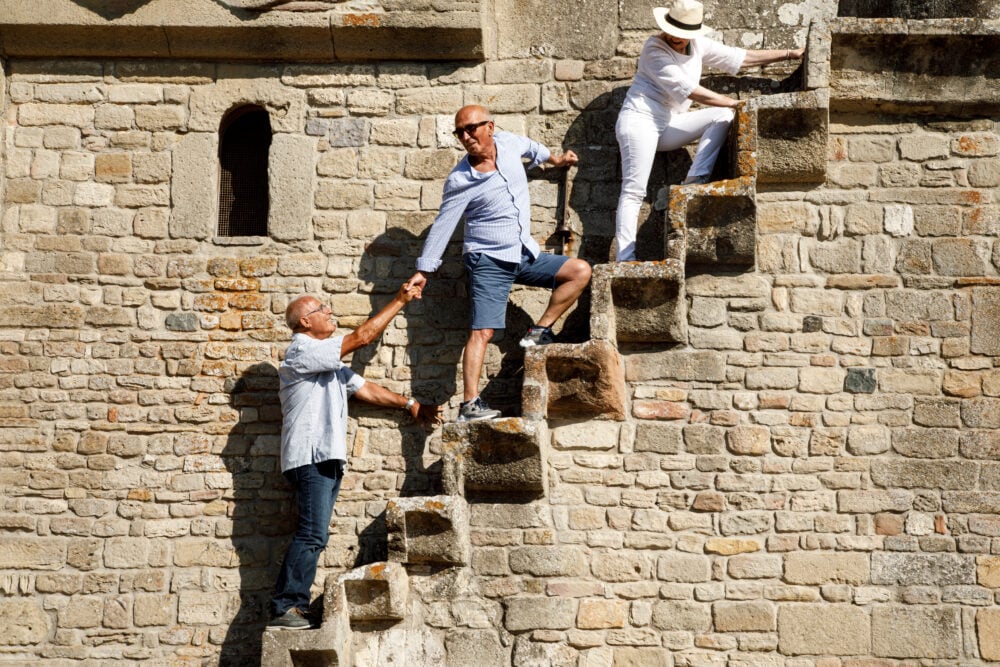
3. Bathroom Accessibility & Shower Safety
The issue:
Hotel bathrooms can vary significantly, especially when travelling through regional areas or staying in heritage-style accommodations, or travelling in global compact cities where space is at a premium. You may encounter step-in showers, shower-over-bath setups, or slippery tiled floors that require a bit of extra care. If you’re not comfortable navigating these types of spaces, it’s worth considering what kinds of setups suit you best and asking about accessibility options when booking. Railway Adventures always requests walk-in showers for their guests but sometimes they just are not available.
Travel Tips:
- Pack a non-slip shower mat or suction grab bar
- Request accessible room types where possible, especially on tours that change accommodation frequently
- Engage in simple exercises to improve your muscle strength and balance in the lead up to travelling
4. Luggage Handling and Lifting Restrictions
Why it matters:
Lifting heavy bags onto trains or into overhead compartments may strain joints, backs, or shoulders, especially if you’ve had joint replacements or arthritis.
Questions to consider:
- Can I comfortably lift 7–10kg of luggage without any assistance?
- Will I need help stowing my bags on the train, coach or plane?
- Can I manage my large suitcase through train stations and in and out of hotels without assistance?
What to do:
- Ask the tour company what laundry facilities will be available on tour when you make your booking, then pack only what you’ll need
- Use wheeled, lightweight luggage with 360° rotation
- Look for tours where luggage transfers between hotels are included (many Railway Adventures tours have luggage porterage and transfers included)

5. Low Vision and Navigating Unfamiliar Settings
The risk:
Navigating busy train stations, reading schedules, recognising signage, or negotiating steps can be a challenge if you have low vision or cataracts.
Common issues:
- Poor lighting in train cabins or hotel rooms
- Difficulty reading tour notes, phone messages from the tour leader, menus or maps
- Missed steps or uneven pavements resulting in a fall
Practical solutions:
- Bring a small flashlight or reading magnifier for dim settings
- You can print out your tour itinerary in large-print if you prefer (or ask us and we’ll do our best to support!)
- If travelling abroad, consider downloading voice-based navigation apps
6. Hearing and Group Communication
Why it matters:
In group tours, hearing announcements, instructions, or storytelling from your tour leader and guides can be challenging for everyone, especially in noisy environments like train stations. This can be particularly stressful if you have a hearing impairment.
Travel Advice:
- Make sure you declare your hearing needs on your booking form so your tour leader knows they’ll need to speak more clearly or ensure you’re seated closer
- Bring spare batteries for hearing aids and a portable amplifier if needed
- You could also use real-time transcription apps (like Live Transcribe) to catch tour commentary

7. Health Conditions and Medications
Why it matters:
Travelling with an Epipen, medications and/or an underlying health condition that could flare up at any time can be stressful but being open about it on your booking form means your Tour Leader can better assist you if medical help is required.
Travel Advice:
- Pack enough medication to last for the duration of the tour – it may not be possible to fill a prescription in some destinations
- Always carry your medications and prescriptions in your carry-on luggage to have them with you
- Write down your medications and preferred treatment for any health condition on a piece of paper, put it in a sealed envelope and give it to your Tour Leader. They then have the information if it is required in a medical situation. They will return the unopened envelope to you at the end of the tour if it’s not been needed.
Staying Travel-Ready: Pre-Trip Health Check
Before any international or domestic journey, it’s worth having a pre-travel medical check-up, especially if you:
- Have chronic conditions like diabetes or heart disease
- Are on multiple medications
- Have recently had surgery or are undergoing physical rehabilitation
Your GP can assess:
- Fitness for extended travel
- Vaccination requirements
- Medication management strategies

8. Dietary Requirements: Don’t Skip this Box
The issue:
Many travellers hesitate to note dietary requirements when booking – often out of politeness or the belief that it’s not a big deal. But this small detail can have a major impact on your comfort and health throughout the trip, and compromise the tour company’s meticulous planning.
Common scenarios:
Missing out on meals due to uncommunicated dietary needs
Stress during group dining when there are no suitable options
Feeling unwell from unsuitable food choices
Quite often, restaurants or dining hosts are unable to accommodate last-minute changes
Practical advice:
Always include your dietary needs at the time of booking, even if they feel minor to you
Be specific (e.g. “coeliac – strictly gluten-free” or “no shellfish – allergy” or no kiwi fruit – preference )
If in doubt, follow up with the travel company before departure to make sure they have the information
Bring backup snacks that suit your needs, especially for remote or regional travel days
Related reading: Why Honesty About Dietary Requirements Matters When Booking Travel
Key Takeaways: Planning for Peace of Mind
Travelling in your later years is hugely rewarding, and much more enjoyable when you plan with care. Here’s a summary checklist:
- Be honest with yourself about your fitness and mobility
- Choose tours with moderate physical exertion
- Confirm stair and bathroom accessibility in advance
- Use mobility aids confidently and comfortably
- Pack smart: lightweight luggage with rotational wheels
- Prepare vision and hearing solutions
- Check your medication supply before departure
- Communicate needs with the travel company and your tour leader early
- Schedule a health check before you go
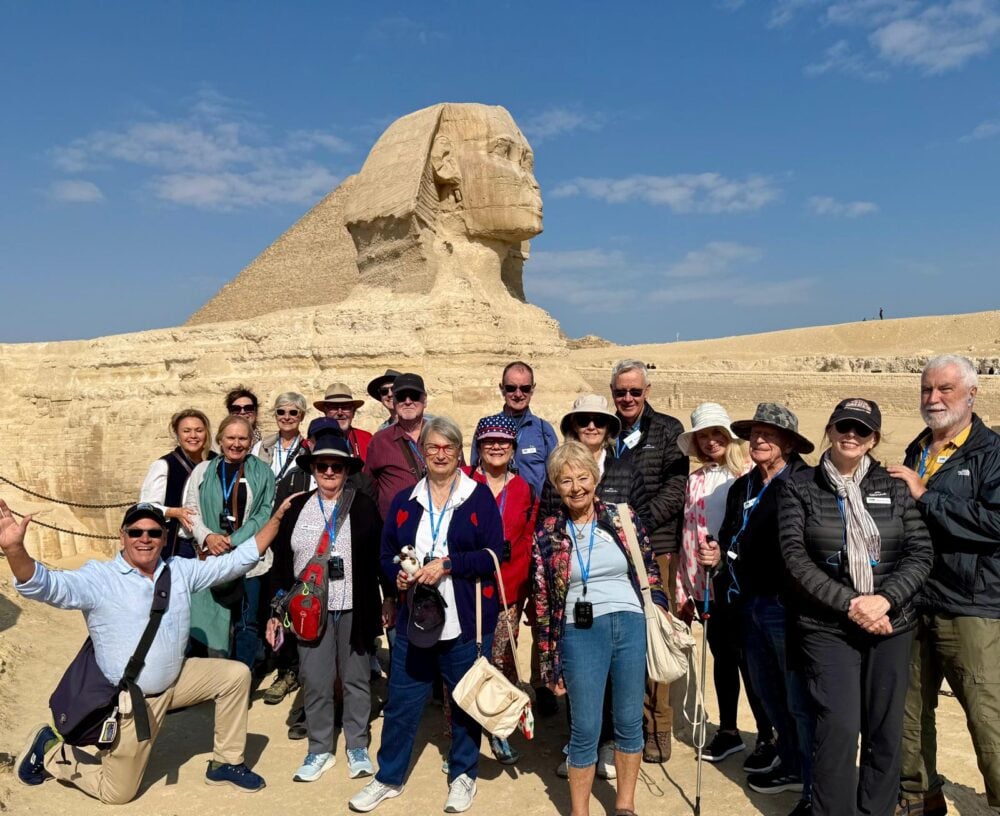
Why Railway Adventures Is a Trusted Choice for Over 50s Travel
We specialise in fully escorted, small-group rail themed tours tailored for curious travellers aged 50+. Our experienced tour leaders take care of every detail, so you can focus on enjoying the journey and not worrying about the planning or logistics. From luggage handling to well-paced itineraries, we build our adventures with your comfort, curiosity, and capability in mind. The more accurate the information you provide us when you book, the better we’re able to give you the experience you’re hoping for.
Whether you’re crossing the Nullarbor, traversing the Swiss Alps, or exploring Japan in autumn, you’ll enjoy a thoughtful and enriching travel experience.
Ready to explore? Browse our upcoming tours at railwayadventures.travel/tours
Frequently Asked Questions (FAQs)
Q: Are Railway Adventures tours suitable for travellers with reduced mobility?
A: Many of our tours are suited for travellers with moderate mobility. However, due to the nature of train travel, historic destinations, and varying accommodation options, full accessibility may vary. Please contact us directly so we can advise the most suitable tours for your needs.
Q: Can I request a room with walk-in showers?
A: Yes, we can make special requests with our hotel partners. Please advise us of your requirements when booking. However, this option may not always be available.
Q: Do your tour leaders assist with luggage?
A: Some of our international tours provide luggage transfers between hotels and this is clearly highlighted in the tour brochure. However, this is rare on domestic tours. While Tour Leaders can assist, it’s preferable that you be able to manage your own luggage.

